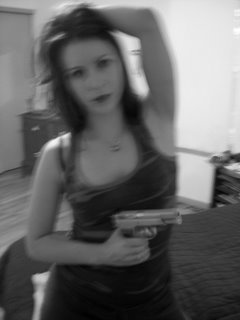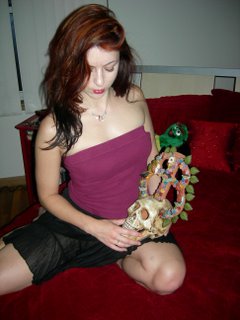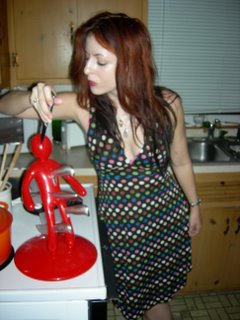
My friend Hank resisted using a cane until near the end of his life when he realized he could hit people with it. Hank's blindness was progressive, the result of macular degeneration, a disease that destroys the retinas of the eyes over time. So for many years, he wore thick glasses until they became pointless. Even without them, he could see enough to get around and more importantly, critique clothing. On a black dress I had picked up off the rack -- a tank top on steroids. On a new line of robes at Victoria's Secret - -Mrs. Roperville (from the ill-dressed female landlord on Three's Company -- although I think his Victoria's Secret assessments were mostly off as he spent a good portion of time were were in the store with his magnifying glass glued to the television screen that played the Victoria's Secret Runway Show).
Hank believed in stealth - he'd always fantasized about working as a private investigator and a cane did not lend itself to stealth. It was a big advertisement to the world -- hey, big blind guy coming through! When he moved to Philadelphia, he relented, knowing that the traffic needed to see him and how he was operating (like a semi, If You Can't See My Mirrors, I Can't See You). He joked about hitting people with it "accidentally," it served to guide and protect. He could still see the shadows, though, lengthening on the sidewalk as day faded into night.
Michelle's Spell of the Day
"Tomorrow never happens. It's all the same fucking day, man." Janis Joplin
Semi-Mirror
1 part grapefruit vodka
1 part lemonade
Serve over crushed ice in a mason jar.
Benedictions and Maledictions
First published in
Phoebe:
After Visiting Hours
A man with blood on his hands stares up
from a Shakespeare in the Park program
advertising MacBeth in the room where we kill
fime before ICU visiting hours. Next to us, a man holds the
Times
and talks about his wife, how long it will take to reconstruct
her breasts. He says, “We’re talking veins and arteries. It’s not that easy.”
My sister and father engage him in conversation, but I haven’t washed my hair
in three days, and it’s starting to show. Yesterday, we were in this same
room waiting for news on my mother’s operation. “We couldn’t rebuild,”
her doctor said, a pretty blonde with a foreign last name. “Too much damage
from the radiation. But I think we got it all. No guarantees,
but things look good considering what we had to start.”
Fourteen hours after that day began, we returned to our cheap
hotel with the deathtrap elevator where we have open-ended reservations.
From the window, the entire medical district lights up with color
every night. When my father and I checked for messages,
two men worked the front desk and one motioned
to the newsman reporting twelve people dead from floods
in the Midwest, and the other man said, “What do you
expect? This is life; no one can stay forever.”
Now one day after, we can only go two at a time, so I stand
in the gleaming hallway until my father and sister come out.
You can only stay two minutes, but that’s long enough. After two,
I start to sob. My mother whispers, “If I knew how bad it was going to be,
I’d have never done it.” A nurse dressed in purple scrubs swabs her mouth with ice
and says, “She’ll be in her own room soon.” I wash my hands
with the anti-bacterial soap they make you use to leave the area under a sign
that lists the universal precautions, listening to noises and alarms
coming from distant places in the hospital that I’ve never seen.
After visiting hours, we eat dinner at a franchise
restaurant designed to simulate good times. I choke
down a bowl of baked potato soup while a family
walks in with two beautiful little girls and a boy with a blue
satchel, “Jonathan” stitched on the back in careful cursive.
Jonathan sits in a wheelchair, accompanied by a Hispanic woman who cuts
his salad into pieces and feeds him while the mother watches the World
Cup Soccer match on a big screen and the father talks to his girls about the shakes
they’ve ordered. “I’m just warning you,” says the youngest. “If I don’t like
this, I’m spitting it out.” At the end of the table, her brother eats without a word.

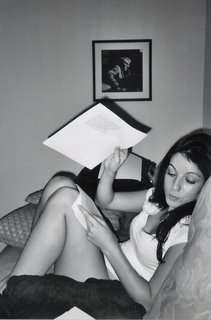
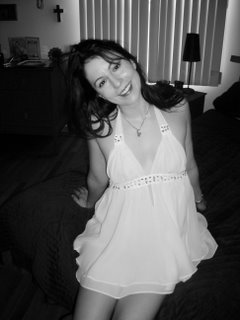



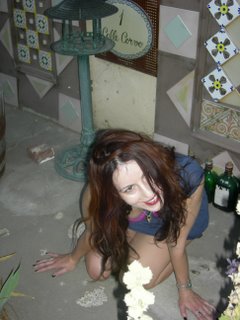
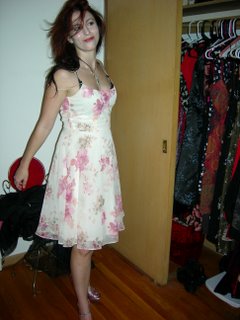
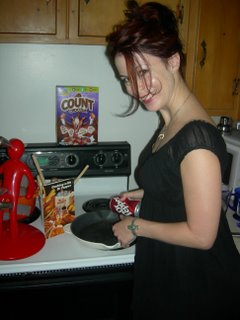
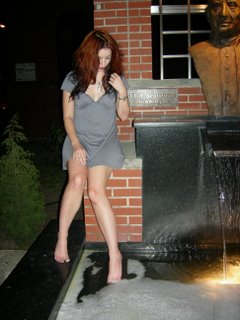




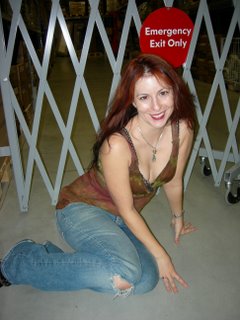
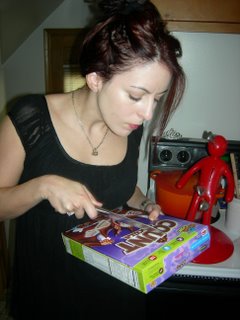
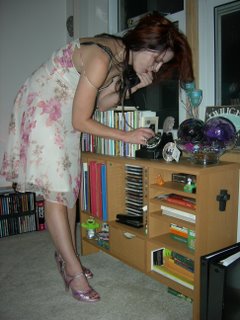


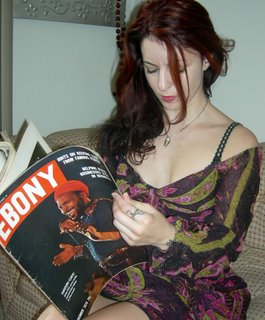 Thanks to the kindness of my yoga instructor Tim, I've been catching up on some back issues of Ebony. By back issues, I'm talking the mid 1970s, my favorite time period. (What's not to love about a time when people drank without so much condemnation and magazines advertised formulas to help women gain weight?, ie, Wate-On will put curves on your backside!) The Ebony in my hands is discussing Marvin's comeback after a five-year exile from Motown. Anyone who knows me that I'm gravitating to this issue over the one with Bill Cosby or even the great Stevie Wonder on the cover. I've been obsessed with his music since I was a little girl, but as an adult, I've come to appreciate the sort of person Marvin was.
Thanks to the kindness of my yoga instructor Tim, I've been catching up on some back issues of Ebony. By back issues, I'm talking the mid 1970s, my favorite time period. (What's not to love about a time when people drank without so much condemnation and magazines advertised formulas to help women gain weight?, ie, Wate-On will put curves on your backside!) The Ebony in my hands is discussing Marvin's comeback after a five-year exile from Motown. Anyone who knows me that I'm gravitating to this issue over the one with Bill Cosby or even the great Stevie Wonder on the cover. I've been obsessed with his music since I was a little girl, but as an adult, I've come to appreciate the sort of person Marvin was.
